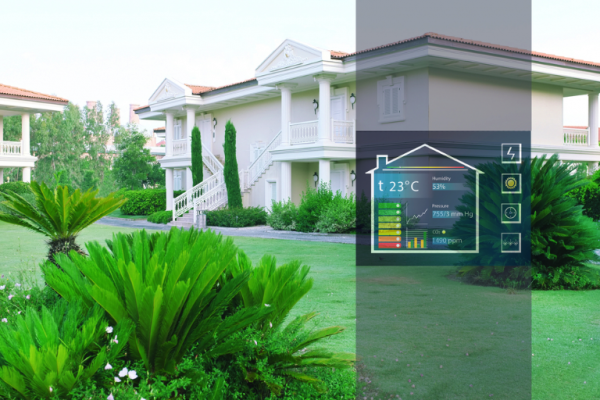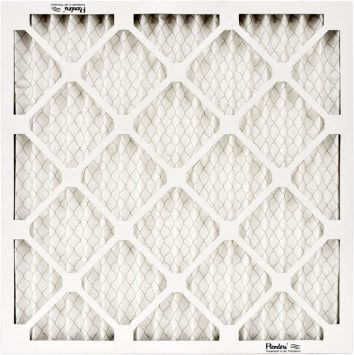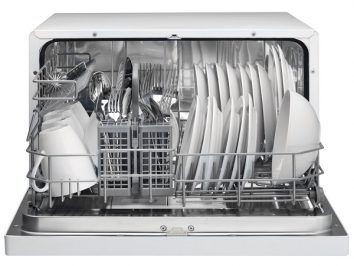Energy efficiency offers significant savings for homeowners, especially in locations where electricity and gas are expensive. Since every home is unique, a professional assessment is recommended to identify the most effective measures in each case. Home building contractors can add value to their services by helping clients improve their home efficiency.
Since HVAC represents over 50% of energy consumption in many single-family homes, energy efficiency measures for these systems are strongly recommended. A whole-building approach achieves the best results in this case, instead of focusing only on mechanical equipment. HVAC efficiency starts with a well insulated and airtight construction, to reduce the workload on heating and cooling systems.
Combining a High-Performance Envelope with Efficient HVAC Units
The thermal envelope is critical for home energy efficiency, having a direct impact on heating and cooling expenses. Adequate insulation, airtightness and windows with low thermal transmittance are fundamental for an efficient home.
- Home builders can suggest construction materials and insulation with a high R-value, while ensuring the building envelope is free from air leaks.
- In existing homes, energy consultants can detect insulation and airtightness issues with thermal imaging cameras.
- Windows with double- or triple-pane glass can be suggested to further improve performance. Double-pane glass typically reduces heat transfer by over 50%, while triple-pane glass can lower it by over 70%. A low-emissivity coating enhances performance in both cases.
The benefits of a high-performance envelope are enhanced when the heating and cooling equipment has a high nameplate efficiency. When discussing HVAC efficiency ratings with homeowners, they can be compared with the gas mileage value of cars, where a higher rating results in lower fuel costs.
Additional efficiency gains are possible if a smart thermostat controls heating and cooling equipment. According to the US Department of Energy, HVAC expenses can be reduced by 10% if the thermostat is set back 10°F for 8 hours each day. A smart thermostat can learn this function on its own, while a manual one must be adjusted daily to achieve savings.
Purchasing the Most Efficient Appliances and HVAC Equipment
A simple suggestion that home builders can give to their clients is purchasing ENERGY STAR appliances. When dealing with HVAC design, the efficiency metrics change depending on the equipment: mini-split units use the Seasonal Energy Efficiency Ratio (SEER), combustion heaters uses the Annual Fuel Utilization Efficiency (AFUE), and water heaters use the energy factor (EF). The ENERGY STAR label simplifies the selection process, since the labeling requirements cover all these efficiency metrics.
ENERGY STAR also covers many home appliances other than HVAC equipment. Labeled LED lamps are recommended for homeowners, since they achieve savings in the range of 30% to 90% compared with older lamp types. An LED bulb also lasts over 20 times longer than an incandescent lamp, and 2 to 3 times longer than a CFL.
Other appliances covered by ENERGY STAR include clothes dryers, washing machines, dishwashers, refrigerators, ceiling fans and electronic gadgets. While these appliances have a much lower energy consumption than HVAC equipment, there is also a savings opportunity. The program also covers construction materials such as insulation, air seals and windows.
About the Author
Michael Tobias, PE, LEED AP, CEM.

Michael Tobias is the founder and principal of Chicago Engineers, an Inc 5000 Fastest Growing Company in America. He leads a team of 30+ mechanical, electrical, plumbing, and fire protection engineers from the company headquarters in New York City; and has led over 1,000 projects in Chicago, New York, New Jersey, Pennsylvania, Connecticut, Florida, Maryland and California, as well as Singapore and Malaysia.
He is a graduate of Georgia Tech class of 2004, with a Bachelors of Mechanical Engineering with honors. His innovative approach to MEP engineering comes from graduating GE’s Engineering Leadership Program, where he designed wind turbines and biofuel power plant engines. Michael’s passion within design is energy efficiency and green technology. His focus is on integrating MEP/FP engineering design with architecture to create as seamless a system as possible. He is an advocate for green design and technologies, and has designed to both Passive House and Net 0 energy standards. He has spoken numerous times at the AIA, been featured in Georgia Tech’s Alumni magazine, and is an engineering expert on Discovery Channel’s show “Impossible Engineering”.
A New York native, Michael grew up in Rockville Centre, LI. He currently lives in Brooklyn with his wife and children. Outside of work, he enjoys exploring the outdoors, whether it’s on a bike, a pair of skis, or a surfboard. He is passionate about growing personally and professionally every day, and about doing innovative work in the engineering world to help disrupt the traditional construction industry.
Loading recommendations...





Hello! Interesting article. Thank you. I also want to share interesting information about J4L.com is a dynamic online destination that seamlessly merges style with functionality, offering a diverse range of products to cater to every need and preference. Its modern and visually appealing layout invites visitors to explore a treasure trove of fashion, tech gadgets, home decor, and more. With a user-friendly interface and secure payment options, j4l ensures a smooth and enjoyable shopping experience for all. The website’s commitment to quality and customer satisfaction shines through in every detail, making it a go-to hub for those seeking a perfect blend of convenience and innovation. Dive into the world of J4L.com and elevate your shopping experience today.
However, even if you have HVAC system with high efficiency metrics, you shouldn’t forget to maintain it regularly and properly. Such a simple thing as keeping HVAC filters clean can improve system efficiency by 5-15%, which means it will consume less energy to function.
Thank you for sharing these tips! If you have a swimming pool, you may also be wondering how you can reduce the amount of energy used for maintenance. After all, pools consume a lot of energy. Here are some tips for you:
1. Purchase a smaller, more efficient pump;
2. Lower your pool’s temperature;
3. Choose an energy-efficient heater;
4. Invest in automated pool features.
I read this article and it seemed to me that the information given in it is quite relevant and useful, but it can be supplemented with some interesting facts and tips. I’ve been researching this for a while now and would recommend reading PissedConsumer.com for more insight on why energy is so important right now. The issues raised in this article are the most relevant.